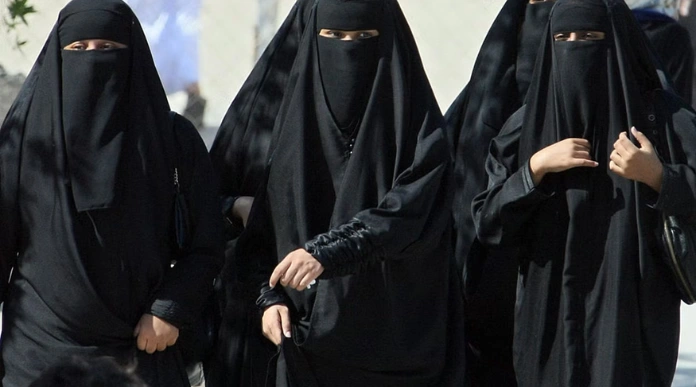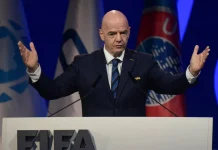The Saudi World Cup is the new and largest player in the fields of sports and tourism, but the legacy of law, censorship, and restrictive social norms follows its profile. The move by Saudi Arabia to host the 2034 FIFA World Cup has thrown the world into an immense level of excitement. They raise questions over its appropriateness to host such a show as the FIFA World Cup, celebrated across the globe as a festival of diversity, inclusion, and freedom.
The reasons why Saudi Arabia may not be the ideal ground for the 2034 World Cup are with contrasts between its restrictive policies and the inclusive spirit of the World Cup.
Human Rights Issues: The Platform of Liberty and Equality
One of the most significant criticisms against Saudi Arabia hosting the FIFA World Cup is its disputable record on human rights because that country has been identified to have the freedom of some people choked while not allowing them to have some freedoms.
For quite a long time, the kingdom has been under criticism from human rights organizations worldwide regarding the restrictions on free speech, severe punishments for those who raise dissent, and curtailing civil liberties in general. As reported by Freedom House, Saudi Arabia is ranked among the lowest globally for freedom of expression, receiving a score of 15/100 in their 2023 report
The FIFA World Cup is all about a celebration of unity and equality as people from so many cultures and religions unite together. But it is challenging to think of a setting in which supporters and players would feel free in a country where freedom of speech is merely an illusion and dissent is punished severely.
Laws of Strict Gender Segregation and Limited Rights for Women
Although Saudi Arabia has introduced reforms to enhance women’s rights recently, it still has problems with segregation and prohibition towards women’s freedom. According to the laws of Saudi Arabia, women were not allowed to drive until 2018, and even nowadays, they are not allowed freely in most public life compared to men.
The World Cup stands for inclusion-unifying supporters of any gender and sexual orientation. In Saudi Arabia, women still are subjected to different extents of control and repression, the question arises of whether female followers would experience freedom similar to that enjoyed in other host countries.
Censorship and Freedom of Expression
The grip that Saudi Arabia exerts over the media and its censorship policies go against values of openness and freedom which form the base of global events like the World Cup. The country has strict regulations on media, and criticism of the government’s religion or cultural aspects is not allowed.
Media persons may even be jailed or deported for printing material that the authorities consider controversial or embarrassing to the reputation of the kingdom. It covers social media and online portals in which the government actively monitors and sometimes censors the content.
Journalists generally feel more limited and fettered within a heavily censored nation when it comes to the freedom of reporting on different aspects of the competition or even covering any issues that transpire outside the pitch.
Lgbtq+ Rights: Absence of Legal Protections and Social Acceptance
Among Saudi Arabia’s most contentious social policies, persecution of LGBTQ+ people remains beyond the issue list. Homosexuality is forbidden, with sentences ranging from imprisonment to whipping and, in extreme cases, to the death penalty. The country, however, strictly prohibits same-sex relationships and never recognizes nor protects the rights of any LGBTQ+ person, a harsh contrast to FIFA’s commitment to inclusion. In 2019, Saudi Arabia executed 37 men, with reports indicating that five of them were executed for engaging in same-sex sexual activity.
The World Cup has, in recent years attracted a huge following from the LGBTQ+ communities. FIFA has promoted the policy of no tolerance toward discrimination, and the hosting of the World Cup in a country where an LGBTQ+ fan may face serious threats to his or her life presents the possibility that many fans will not feel safe attending a tournament.
Social Constraints and Cultural Variations
The conservative culture of Saudi Arabia places restrictions on public behavior, dress codes, and interaction in the social sphere. Such norms may be tough for fans from around the world. Alcohol is also something freely enjoyed by fans during a match; however, it is strictly prohibited in Saudi Arabia.
The fact that every host country has its cultural norms, while Saudi Arabian rules may result in an atmosphere wherein fans feel restricted or even scared people from an otherwise minor violation. Even though this freedom of celebrating in the streets or wearing something casual or even lively post-game can happen there is quite a different scenario in Saudi Arabia.
International Image and Public Opinion
Yet, international skeptics doubt their intentions to improve their international image. Initiatives such as “Vision 2030,” which focuses on economic diversification and social reform, further international skepticism. Such skepticism is encouraged by its social policies-its conservative policies and the restrictions placed on personal freedom in high-profile cases like the murder of journalist Jamal Khashoggi. In the 2023 Global Gender Gap Report by the World Economic Forum, Saudi Arabia ranked 147th, falling behind 146 other countries, highlighting significant gender inequality.
Conclusion
The conservative law and censorship practices with limited freedom in Saudi Arabia starkly contrast with the FIFA World Cup spirit of openness and inclusion. Although modernization may have given the kingdom some ground to gain, it is still not ready for the playing field. The World Cup is more than a sporting event; it is an entertainment extravaganza for global unity, human rights, and cultural exchange. It could be an embarrassment to host this tournament in a country with very limited freedoms and contentious human rights practices to the principles of those associations demanding their respect be honored.












